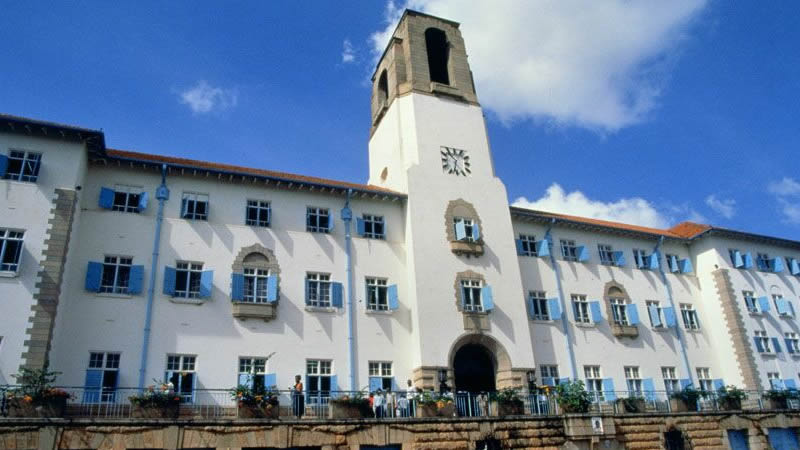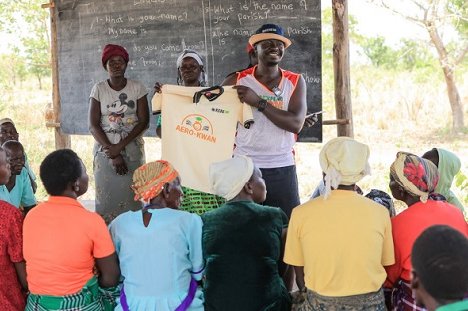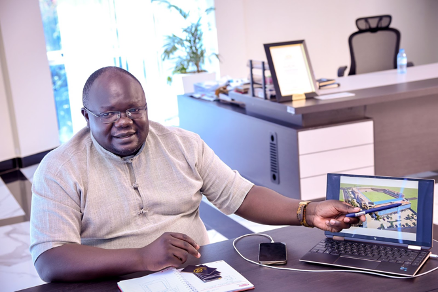Briefly introduce yourself.
My name is Kizza Shadrack Yawe, and I graduated with a Bachelor of Statistics on 31st January 2024. During my studies, I was attached to Livingstone Hall.
What is your current profession/what do you do for a living?
Presently, I work as a data engineer at a data solutions company located in the United States. To enhance my career in the data field, I pursued several certifications through Microsoft and its learning partners, including Coursera, Udemy, and DataCamp. I gained knowledge in cloud fundamentals, data fundamentals, programming, and data engineering, and I am now a certified Microsoft Azure Data Engineer. These experiences, coupled with my Statistics Degree, gave me a strong foundation to start my career in the data field.
How did you secure your current job?
I secured my current employment through a series of internships and projects. I used these opportunities to demonstrate my understanding of the subject matter and application of the knowledge I gained while learning both my degree and certifications. This led to me securing a contract with the company to work remotely on several of their ongoing projects relating to data migration and data engineering.
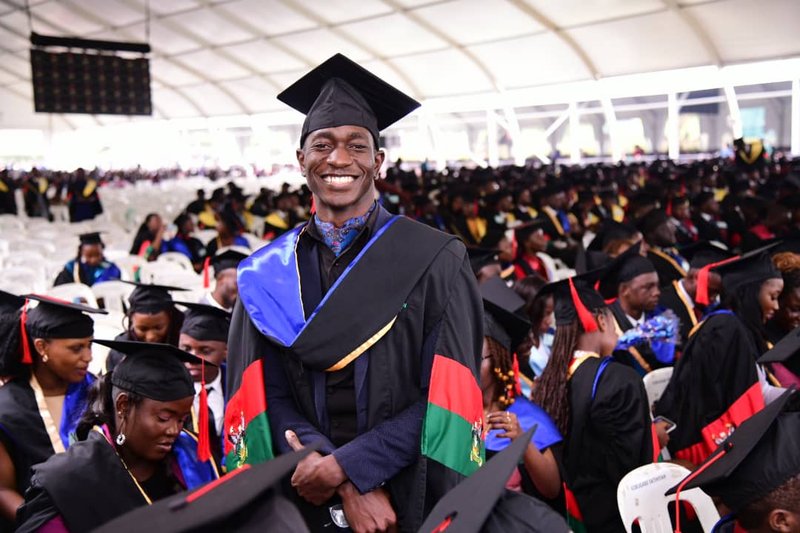
Kizza Shadrack Yawe beams away on Day 3 of the 74th Graduation Ceremony.
How easy/challenging is it to perform your current role?
In my current role, self-learning and delivering your best are crucial. There are no shortcuts; you have to work hard. The learning curve gets steeper each day, but you must remain hungry for knowledge and keep up with the latest technology. I enjoy it, so even when the going gets tough, I must get tougher.
What is the pay like? Would you mind sharing what it enables you to do or not do?
The salary I receive is competitive and has allowed me to acquire tools that enable me to compete at an international level. With this salary, I no longer have to worry about having a slow laptop, poor network, or being unable to pay for certifications. I can now easily afford such expenses, allowing me to work on certifications on the go. In the past, I had to save for months to afford one certification, but now, with the financial resources I have, I can keep up with the latest tools and technologies that emerge in the market. This helps me stay ahead of the curve and remain competitive in my field.
Does the time difference between Uganda and the US affect you?
The time difference between Uganda and the US is about eight hours, and I must put in about 18 hours a day to stay ahead of my work. Even though I am only paid for eight hours, I am flexible with my working schedule and choose the hours that work best for me. I try to be accessible during both the US and Uganda working hours to be reliable and show my dedication. I do not want to miss any opportunities because of the time difference, so I make myself available whenever needed. However, I also prioritize taking breaks and getting enough rest to avoid burnout.
Do you see yourself continuing to work remotely in the future? Why or why not?
While I am currently enjoying remote work, I am also considering other opportunities in the tech industry. I aspire to work for a big tech firm like Microsoft, Snowflake, or Nvidia, and I regularly check their career pages for any openings that match my skill set. I am always looking for new opportunities that challenge me and help me grow my skills.
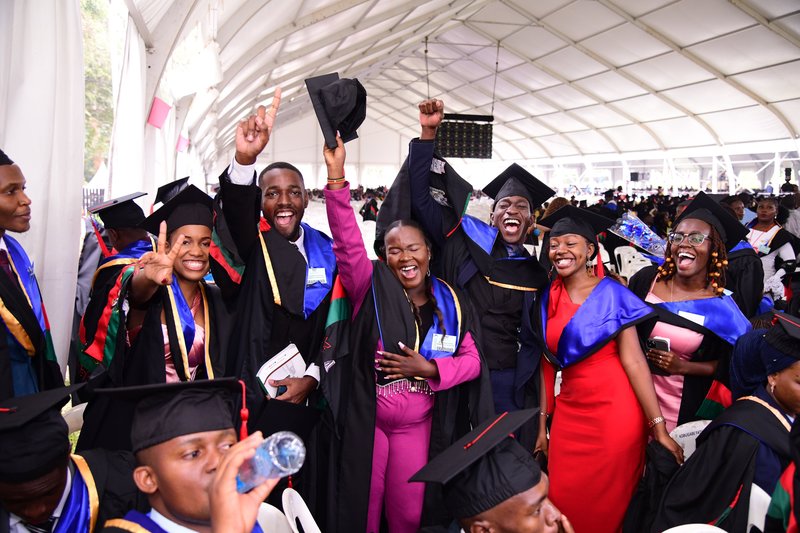
Kizza Shadrack Yawe (3rd Right) with fellow graduates on Day 3 of the 74th Graduation Ceremony.
What are the pros and cons of remote work?
One significant advantage of remote work is the flexibility it provides. I can work from anywhere, and I do not have to waste time on a commute. This means I can use the extra time to be more productive. However, a disadvantage of remote work is that I miss the social interaction that comes with working with a team in person. Collaborating with colleagues in a physical space allows us to build bonds that make us better teams. In remote work, most interactions are via video conferencing or messaging, which makes it harder to build such connections.
What lessons from your time at Makerere continue to impact you personally and professionally?
At Makerere, I grew to immensely appreciate the importance of self-learning. I understood that the lecturer would only provide me with 20%, and I had to look for the remaining 80%. I had to read several reference textbooks to help me master course content. This fueled my drive and hunger for new knowledge. The lecturers won't give you everything in class, so you need to strive to get ahead, understand, and deliver every semester. This attitude continues to be reflected in my work today. No one will do your pushups for you; you must read and acquire knowledge to remain relevant in your position. Otherwise, people with more knowledge than you will replace you.
What advice would you give to current students or alumni on how to secure your type of job?
My advice on how to secure such a role is to keep reading and following up on recent technologies. There are no shortcuts; you must understand the fundamentals and master them. In that way, you can develop tremendously because everything is built on the core concepts. Make time outside your schedule to learn these things and be prepared to keep on that path of discovery.
Related News
![]() Please join hands with the Makerere University Endowment Fund as it works towards attracting & retaining the best faculty, providing scholarships, and investing in cutting-edge research and technology.
Please join hands with the Makerere University Endowment Fund as it works towards attracting & retaining the best faculty, providing scholarships, and investing in cutting-edge research and technology.
